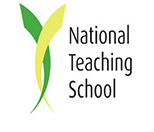English
The English department offers two courses: English Language & Literature and English Literature (please scroll down for information about these courses).
English Language & Literature
Why study English Language and Literature?
If you enjoyed English at GCSE but like the idea of something a little bit different, if you’re interested in studying non-fiction texts and speech transcripts as well as just literature, and you’re keen on doing some creative writing, then this would be a good course for you.
What will I study?
AS Units
Unit 1:
- Integrated Analysis and Text Production (25% of total A Level).
- Study of 2 substantial fiction texts.
- Exploration of literary and linguistic issues: - the study of the use of language and style to develop and explore issues with the texts
- Language production task: - candidates produce a piece of their own work adopting a different style or voice, based on the study of a set text.
- Assessment is through a written examination.
Unit 2:
- Analysing Speech and Its Representation (25% of total A Level).
- Study of 1 substantial fiction text from any genre.
- Exploration and examination of speech and other stylistic issues within the set text.
- An analytical comparison of unseen spoken texts.
- Assessment is through a written examination.
A2 Units
Unit 3:
- Comparative Analysis and text Adaptation (30% of total A Level).
- Study of 1 substantial non-fiction text.
- Comparative essay analysing 3 unseen texts.
- Language production task: - focusing on non-fiction writing.
- Assessment is through a written examination.
Unit 4:
- Comparative Analysis Through Independent Study (20% of total A Level)
- A detailed, analytical study of 2 substantial texts, one of which must be poetry.
- Internally assessed coursework folder 2000-2500 words.
How will I study?
Teachers will use a variety of strategies in class to enable your learning, for example teacher-led lessons, drama, workshops, and presentations. You will need to be prepared to work in a group and be motivated to work individually. You must be capable of meeting deadlines.
What do I need to start the course?
You will need at least two B grades in English Language and English Literature.
The Advanced Extension Award
The AEA in English is designed to provide opportunities for A grade candidates to demonstrate a greater depth of understanding than that required at A Level and to demonstrate the ability to think critically and creatively.
The AEA is offered to Year 13 students as an extra curricular course. It is of particular interest to students who achieve an A grade at AS Level and are considering English at degree level.
There is no prescribed content for study, rather the exam is based on a collection of diverse, unseen reading material centred on a given theme which may be topical or based on a specific period. The AEA is available to students studying either of the English A Level courses.
ENGLISH LITERATURE
Why study English Literature?
If you enjoy reading and studying a wide range of poetry, prose and drama texts, and you want to develop your analytical skills as well as seeing the texts in the context of the time when they were written, then you will get a lot out of this course.
What will I study?
AS Units
Module 1: Poetry and Prose1800 � 1945 (30% of total A Level).
Study of a novel and a poetry text from different historical periods with a 1 hr 30 min written exam.
Module 2: Literature post-1900 (20% of total A Level).
Study of a 3 post-1900 texts from a variety of genres, resulting in two coursework essays.
A2 Units
Module 3: Drama and Poetry pre-1800 (30% of total A Level).
Detailed study of a Shakespeare play, one other drama text and one poetry text assessment is through a 2 hour written exam.
Module 4: Texts in Time (20% of total A Level).
The study of 3 texts from different genres and historical periods resulting in one extended essay of a maximum of 3000 words.
How will I study?
Teachers will use a variety of strategies in class to enable your learning, for example teacher-led lessons, drama, workshops, and presentations. You will need to be prepared to work in a group and be motivated to work individually. You must be capable of meeting deadlines.




